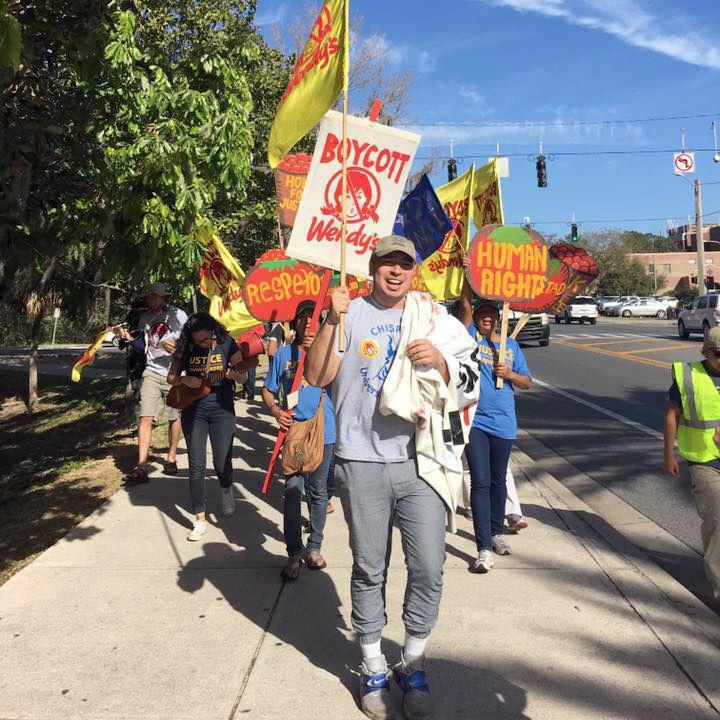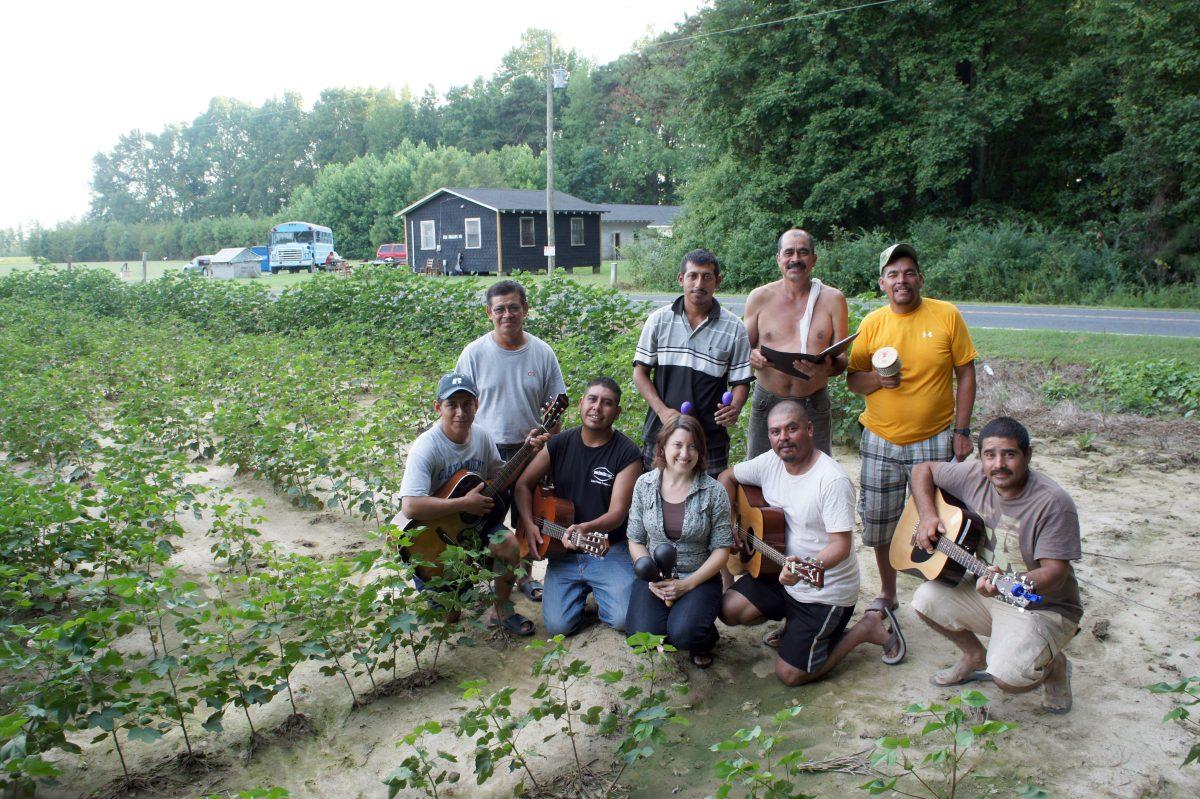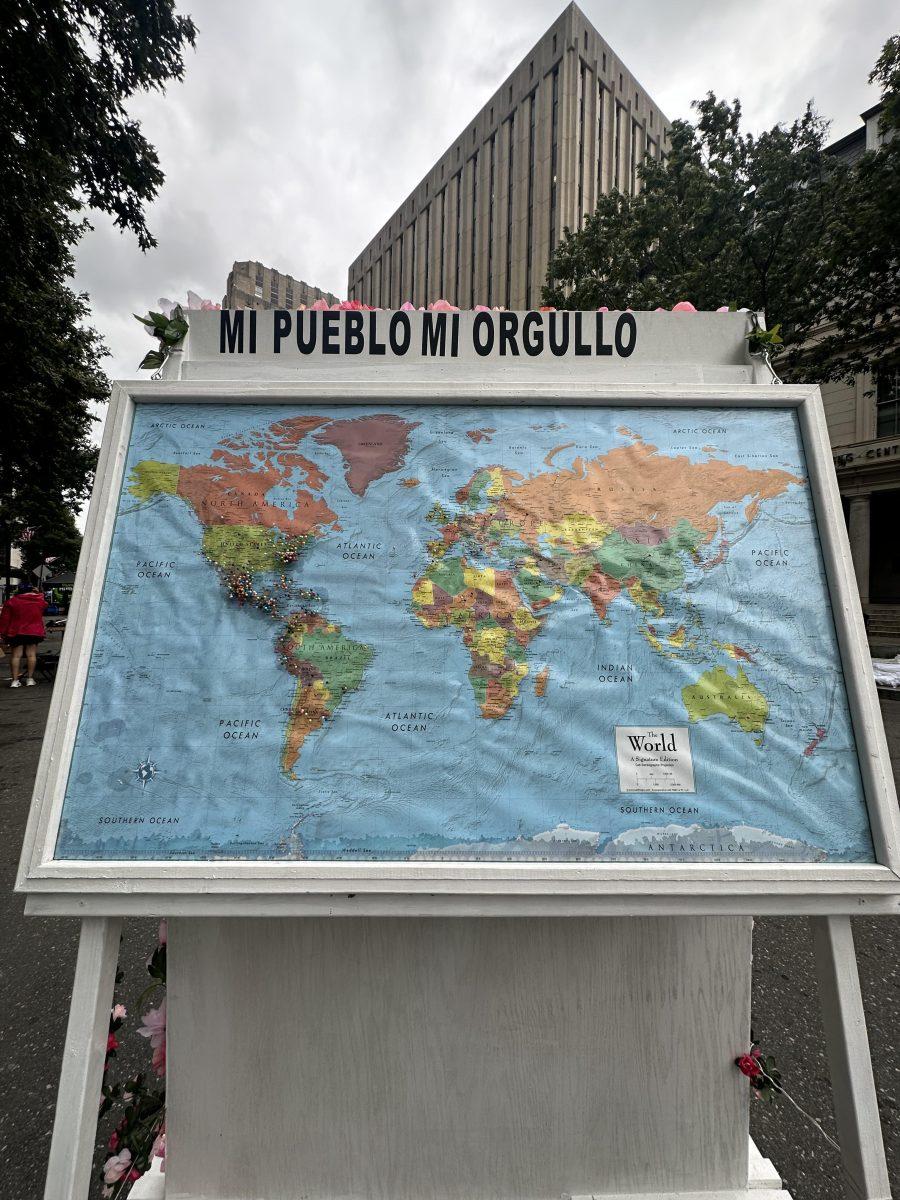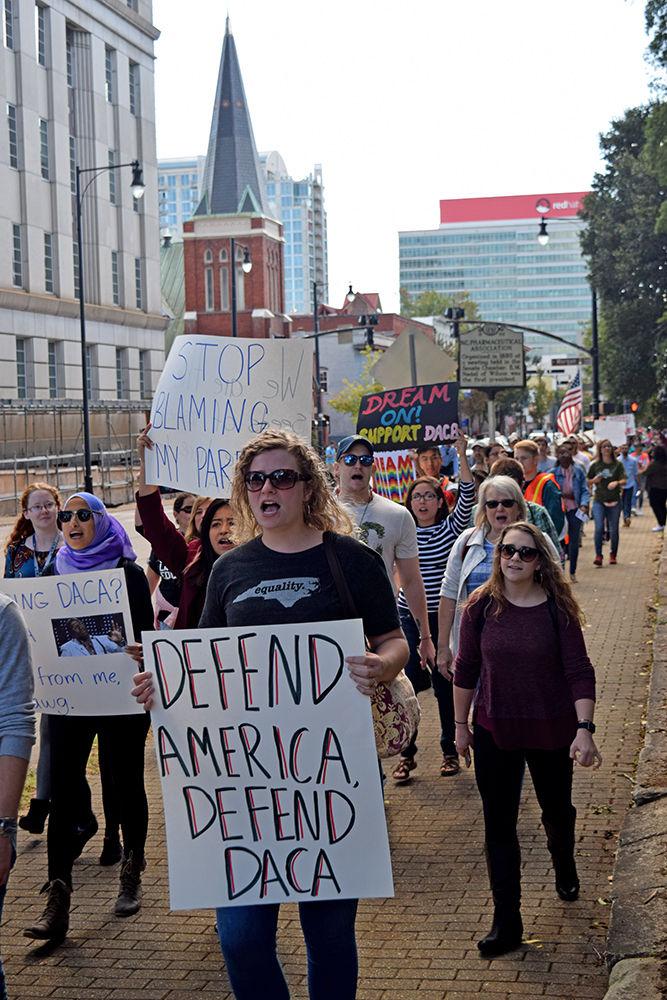The Student Action for Farmworkers will initiate the 17th annual National Farmworkers Awareness Week Thursday. Involving campuses, communities and organizations, the week is organized to commemorate the contributions of farmworkers and raise awareness of farmworker challenges.
Yazmin Garcia Rico, national SAF organizer, has been planning this year’s awareness week since November. Garcia Rico said SAF is trying to accomplish two things this year with National Farmworkers Awareness Week.
“One is to celebrate the legacy of farmworker activist, Cesar Chavez, as we coordinate the awareness week around his birthday, March 31,” Garcia Rico said. “We also want to celebrate farmworkers and their contributions right now, but also make their challenges known. Many people think that farmworker issues have been resolved since the 1960s during Chavez’s time but unfortunately that is not true.”
According to the SAF website, about 2 million – 3 million people work to handpick 85 percent of the fruits and vegetables grown in the United States. Although farmworkers receive minimum wage under the 1978 amendment of the Fair Labor Standards Act, federal laws exclude farmworkers from overtime pay, unemployment insurance or protection when joining unions. In addition, labor laws differ among farmworkers, as children as young as 12 years old can work in the fields.
“I feel like a lot of time people think of farmworkers as only males that have left their families behind to come to work, but in reality, the farmworkers include women and children as well,” Garcia Rico said. “Half the students that work with SAF have worked in the fields themselves or come from farmworker families.”
Considered one of the top-10 most dangerous industries according to the Bureau of Labor Statistics, Jenna Horgan, a graduate student studying social work, recognized the unfit conditions while visiting farmworkers in North Carolina during an internship with SAF.
“I was personally able to see what they were going through: pure exhaustion, depression from missing home, exposure to chemicals, sun or natural elements such as nicotine from harvesting tobacco, which can make individuals sick and prevents sleep,” Horgan said. “In addition, people often lived in shacks that 12 people occupied, many worked 12 hours a day and most did not have access to transportation, leaving them very isolated.”
Understanding the conditions of farmworkers, last year Horgan participated in National Farmworker Awareness Week by collecting 100 long-sleeve shirts to give to farmworkers in Eastern North Carolina to help protect them from sun and chemical exposure. Continuing her mission, Horgan is setting up donation boxes in the 1911 Building, Patterson Hall and Withers Hall on campus with the goal of obtaining 200 long-sleeve shirts.
“With NC State being a leader in agriculture, my hope is that our campus community can be more involved with the farmworker justice movement,” Horgan said.
Nonprofit, faith-based National Farm Worker Ministry is another organization participating in the National Farmworker Awareness Week. Executive Director Julie Taylor said it is important farmworkers feel appreciated for the work they do.
“I want farmworkers to be able to acknowledge the importance of their work,” Taylor said. “Their work is more specialized than what we recognize, and I would like for them to see that people are advocating and appreciating them.”
In advocating for farmworkers, National Farm Worker Ministry is supporting the ongoing Wendy’s boycott originally declared in 2015 by the Coalition of Immokalee Workers as a response to the company’s refusal of not signing the Fair Foods Program, a human rights protection agreement.
The boycott continues its presence during the National Farmworker Awareness Week in Greensboro today as a peaceful protest in front of the Wendy’s on 1500 West Gate City Blvd. at 4:30 p.m.
Taylor said the goal of the boycott is to get companies like Wendy’s to meet with farmworker organizations to discuss a contract and to agree about better wages and conditions for their farmworkers.
“Fifty-one years ago, protesters marched 25 days with Cesar Chavez to raise awareness for farmworkers through the grape strike and protest,” Taylor said. “That march got attention and we hope this boycott and week of awareness will bring the attention of others as well.”
Garcia Rico said the ultimate goal of the awareness week, as well as farmworker advocacy in general, is to direct the conversation to solve the injustice farmworkers face.
“In the U.S. there has always had to be someone that has worked in the fields and have been oppressed, and it now happens to be Latinos,” Garcia Rico said. “I feel like a lot of the conversation over the past few years [in agriculture] has been about the environment, which is great, but we need to also focus on the human needs.”
National Farmworker Awareness week is from Thursday to March 31, and it aims to raise awareness about farmworker conditions as well as honor the contributions farmworkers make to the U.S. every day, according to the SAF website.
More information is available at farmworkerawareness.org.
Jenna Horgan, una estudiante de posgrado estudiando trabajo social, reconoció las condiciones inadecuadas mientras viajando a los campesinos en Carolina del Norte durante una práctica con Estudiantes en Acción con Campesinos, o SAF.











